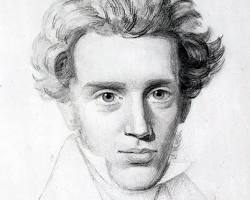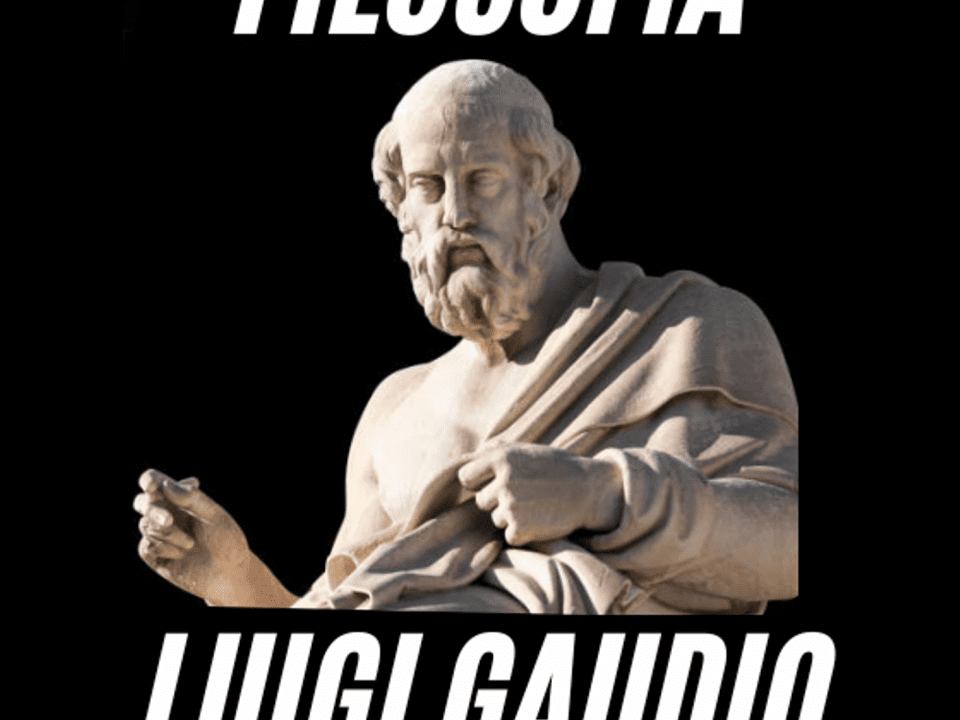Søren Kierkegaard (1813–1855) was a Danish philosopher and theologian, widely regarded as a forerunner of existentialism.
His philosophy, deeply rooted in his personal religious experience, focuses on the individual and their relationship with God, exploring themes such as anxiety, despair, choice, and faith.
Life and Historical Context
Born in Copenhagen, Kierkegaard lived during a time of significant cultural and religious transformation. Hegelian idealism, which dominated the philosophical landscape, emphasized totality and the absolute, whereas Kierkegaard turned his attention to the singularity of individual existence.
Ritratto di Søren Kierkegaard
The Three Stages of Existence
Kierkegaard divides human existence into three stages:
- The Aesthetic Stage: Characterized by the pursuit of pleasure and enjoyment, the aesthetic stage is marked by immediacy and the transient. The individual constantly seeks new sensations but never finds lasting satisfaction.
- The Ethical Stage: In this phase, the individual takes on responsibilities and strives to lead a morally upright life. However, the ethical stage does not provide a definitive answer to deeper existential questions.
- The Religious Stage: The highest stage of existence, where the individual confronts God and their own finitude. Faith is a leap into the unknown, a choice that demands total commitment.
Questo diagramma rappresenta le tre fasi dell’esistenza
Anxiety and Despair
Anxiety is a central theme in Kierkegaard’s philosophy. It represents the awareness of one’s freedom and the ability to choose between good and evil. Despair, on the other hand, arises from the awareness of one’s finitude and the inability to fulfill the infinite desire to “be.”
Faith as a Choice
For Kierkegaard, faith is not a matter of knowledge or rationality but an existential choice. It is a leap into the dark, an act of trust in God that transcends rational understanding. Faith is a personal relationship with God, requiring the individual’s total commitment.
Kierkegaard’s Influence
Kierkegaard’s thought profoundly influenced later philosophy, especially existentialism as developed by Sartre, Heidegger, and Jaspers. His ideas remain relevant today, continuing to provoke debate.
Key concepts in Kierkegaard’s philosophy:
- Individuality: Each person is unique and unrepeatable.
- Choice: Humans are free to choose and determine their destiny.
- Anxiety: Awareness of freedom generates anxiety.
- Despair: Awareness of finitude generates despair.
- Faith: Faith is a choice that transcends reason.
Kierkegaard’s Use of Pseudonyms: A Maze of Voices
One of the most intriguing and complex aspects of Kierkegaard’s literary production is his systematic use of pseudonyms. Through multiple fictitious identities, the Danish philosopher created a textual labyrinth where each voice expressed a different, often contradictory, perspective on the same theme.
Why pseudonyms?
- Distancing: They allowed Kierkegaard to distance himself from his opinions, presenting them as the theses of other authors.
- Multiplicity of voices: This approach enabled him to explore multiple viewpoints on the same topic, enriching the discussion.
- Provocation: The pseudonyms were a means of challenging readers to think critically and avoid passively accepting ideas.
Notable pseudonyms:
- Victor Eremita: The “victorious hermit,” author of Either/Or, represents the aesthete living for pleasure and the present moment.
- Johannes de Silentio: The “John of silence,” author of Fear and Trembling, embodies the believer living in a personal relationship with God.
- Johannes Climacus: A central figure in Kierkegaard’s thought, representing the philosopher seeking truth through dialectics.
- Anti-Climacus: The antagonist of Climacus, embodying the orthodox Christian rejecting all mediation between faith and reason.
Kierkegaard’s Critique of the Church
Kierkegaard was a sharp critic of institutional Christianity, accusing the Church of betraying the true message of Christianity by reducing it to a mere social institution. For him, authentic faith was a personal relationship with God, not mere adherence to dogmas and rituals.
Subjective Truth
Another fundamental concept in Kierkegaard’s philosophy is “subjective truth.” Unlike objective truth, based on evidence and demonstration, subjective truth is a lived truth—an existential experience involving the individual’s entire being. For Kierkegaard, faith exemplifies subjective truth, as it is rooted in a personal choice and cannot be rationally proven.









